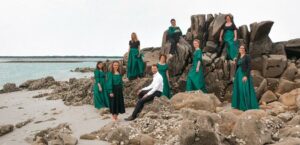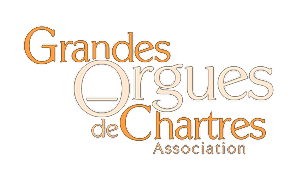 Founded in May 2022 by conductor Paul de Guerry, the vocal ensemble Flos de Virga is dedicated to promoting a cappella vocal music, with a particular focus on medieval repertoire. Its mission consists of making the oldest musical heritage accessible to contemporary audiences by exposing the historical, literary, philosophical and theological dimensions that presided over its creation.
Founded in May 2022 by conductor Paul de Guerry, the vocal ensemble Flos de Virga is dedicated to promoting a cappella vocal music, with a particular focus on medieval repertoire. Its mission consists of making the oldest musical heritage accessible to contemporary audiences by exposing the historical, literary, philosophical and theological dimensions that presided over its creation.
Faced with the requirement for embodiment and personalization that medieval music demands through the power of its texts, Paul de Guerry has brought together nine singers from different backgrounds. These nine voices, trained in both the world of jazz and Gregorian chant, offer a diversity of timbres and techniques that simultaneously constitutes a harmonization challenge and considerable interpretive richness in service of this somewhat mistreated repertoire.
The Flos de Virga ensemble is not limited to medieval repertoire and embraces the variety of vocal heritage, notably exploring stylistic transformations from one era to another. Under the direction of Paul de Guerry, it thus offers a musical journey extending from the medieval period to the contemporary era, integrating improvisation techniques and traditional oral musical practices. It is this diversity of timbres and this interplay between repertoires and traditional ornamentation that forge the ensemble’s sonic identity.
Since its creation, Flos de Virga has performed in Paris (churches of Saint-Roch, Notre-Dame de la Salette, Notre-Dame de l’Assomption) and in the Paris region (Boulogne, Nogent-sur-Marne), as well as in Normandy at the abbey of la Lucerne and in Brittany at the abbey of Kergonan during artistic residencies. The ensemble develops thematic concerts around Marian programs corresponding to liturgical feasts, performed on fixed dates on the day of said feasts: Immaculata (December 8), Annunciation (March 25), Visitation (May 31), Maris stella (July 26) and Mater Dolorosa (September 15 and Lent).
Paul de Guerry
A graduate in aesthetic philosophy, he continues his musical training in Paris in choral conducting at the Pôle Supérieur of Paris-Boulogne and in medieval music at the Sorbonne, benefiting from the teachings of Brigitte Lesnes, Marc Mauillon and Raphaël Picazos. A long experience with liturgical music gives him a particular sensitivity for the spiritual scope of medieval repertoire. Attentive to the poetic richness of texts, he favors a mediation approach with the public, offering listeners the keys to understanding the works and their meaning during concerts.


